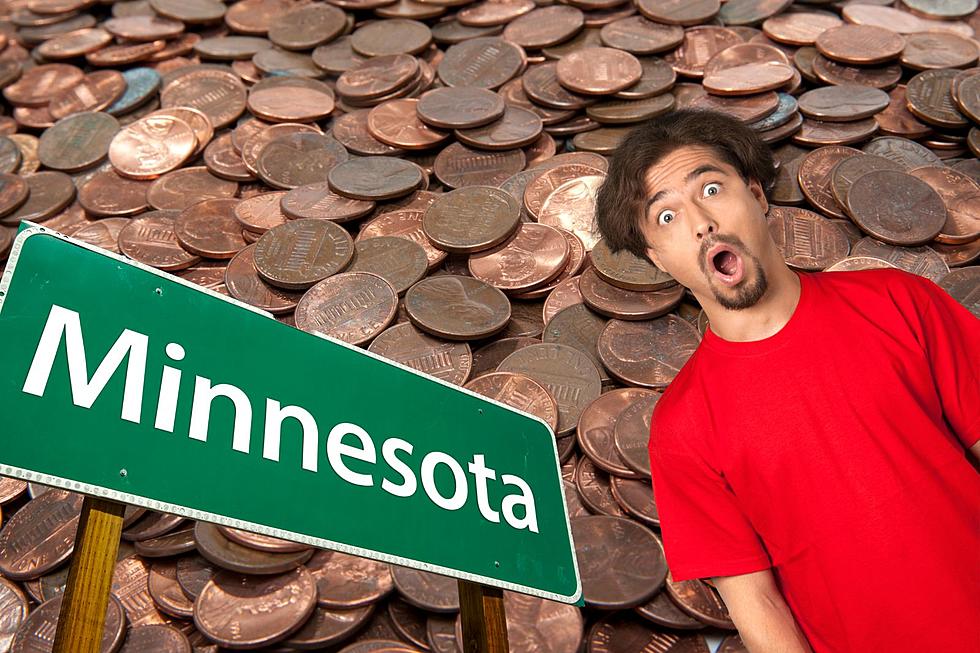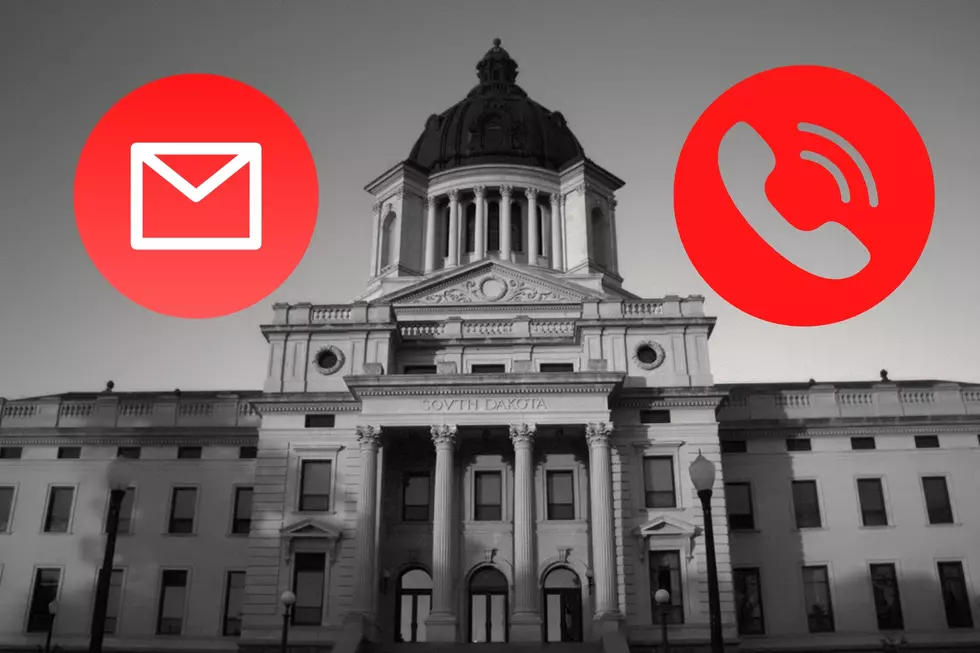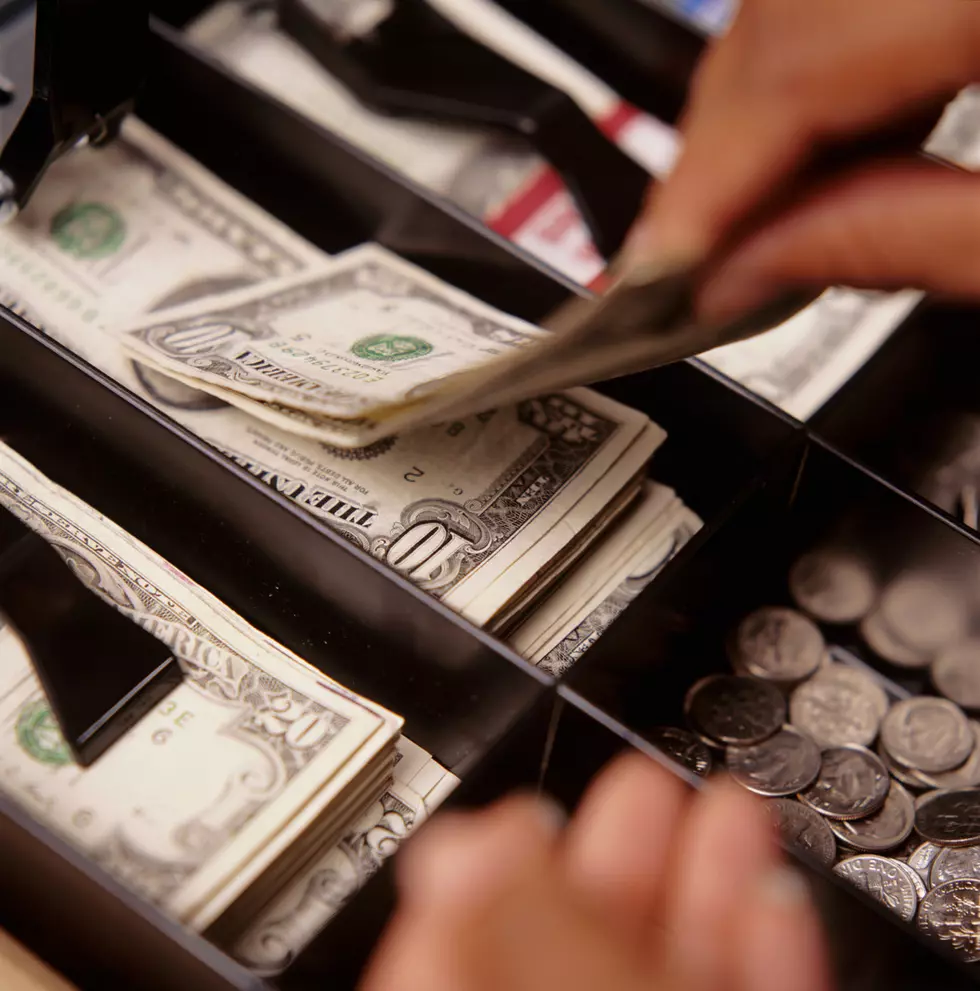
South Dakota Lawmakers Debate Pair of Sales Tax Cut Bills
PIERRE, S.D. (AP) — South Dakota lawmakers are debating competing measures to address the Legislature's commitment to scale back a 2016 sales tax hike.
The state House voted narrowly Monday to advance a bill that would incrementally roll back the half-cent sales tax hike dedicated to raising teacher pay each budget year that sales tax revenue growth exceeds a certain threshold. Lawmakers are debating the proposals because of ambiguity in the roughly three-year-old law that sought to require the tax increase be phased out if the state ever gained the ability to collect sales taxes from out-of-state internet retailers.
The state won a U.S. Supreme Court case last year clearing the way for such collections, which started Nov. 1. Under existing law, the state's 4.5 percent rate is to be rolled back by one-tenth of a percent for every additional $20 million in online sales tax revenue collected, with a floor of 4 percent. But officials have said new legislation would be required for the envisioned tax reductions to occur.
State senators approved Republican Sen. Jeff Partridge's measure earlier this month that would repeal provisions directing the tax cuts and instead allow the Legislature's budget-writing committee to propose reductions each year that online sales tax revenue grows by $20 million. Partridge, who sponsored the 2016 rate rollback provision known as the "Partridge amendment," told senators that his bill would strike the original language to resolve the ambiguity and clarify the process for the Legislature and the governor.
Partridge said Tuesday that he doesn't view the two measures as competing.
"I just see these as potential bills that could work together and could play well together in the sandbox if we helped them along and worked well on this together," Partridge said.
Americans for Prosperity-South Dakota's state director, Don Haggar, said he'd be surprised if Partridge's bill passes a House committee vote and that he thinks the representatives' plan is a better alternative. The more forceful bill veers away from online sales taxes and instead encompasses overall sales tax revenues.
It would automatically trigger a one-tenth of a percent rate reduction each budget year that sales tax collection growth exceeds cost-of-living plus $20 million, also setting the floor at 4 percent. Sales taxes are the state's main revenue source. Lawmakers in 2016 dedicated the money raised by the historic tax increase to boost South Dakota teacher pay, which was the lowest in the nation.
Mary McCorkle, president of the South Dakota Education Association, a teacher's union, said she's worried the state wouldn't be able to honor its financial commitments under the House bill. She said it wouldn't allow for funding growth and that the state must make sure there's enough revenue for education funding and to keep moving forward on teacher salaries.
"I think it would be an unfortunate thing if we stood still and ended up right back on the bottom again," said McCorkle, adding that she believes Partridge's bill is a better approach.
Republican Rep. Chris Karr, who sponsored this year's House plan, told representatives that the bill "fulfills a promise" to taxpayers about rolling back the sales tax rate. He called the measure a more "financially responsible" way to address the rate, saying gross sales tax receipts are a very good indicator of the health of the state's economy.
"It's going to live up to the promise and it's realistic," he said.
When the economy is healthy, the measure would start backing off the sales tax rate and return money to taxpayers, Haggar said. He said the bar would be set fairly high to trigger the reductions in a process that's likely to play out over five to 10 years.
But Republican Rep. David Anderson urged his colleagues to vote against the bill, saying the move is dangerous and that lawmakers' promise was based on internet sales tax collections. He said it's too early to change the triggering mechanism and that legislators have to think about how the bill would affect the state.
"In my district, I've had virtually no one come up to me and say, 'We gotta do this,'" Anderson said. "The people in my district want to pay teachers better, want to pay community service providers better, and on and on it goes, because they know we're behind the eight ball and behind the economy."
Asked about Partridge's bill earlier in February, Republican Gov. Kristi Noem said she wants to wait until the state has more revenue data.
Copyright 2018 The Associated Press. All rights reserved. This material may not be published, broadcast, rewritten or redistributed.
More From KXRB









